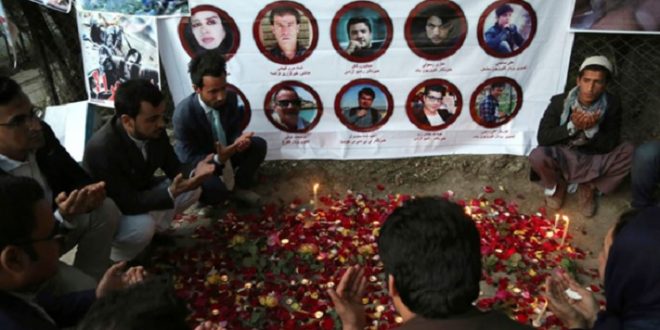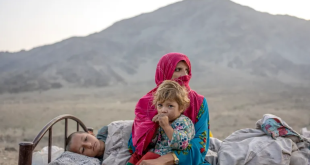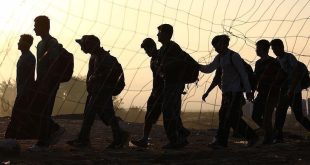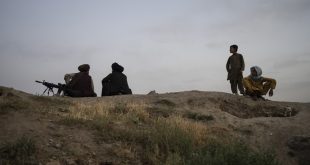By Rafiullah Anwari
KABUL: Afghanistan is among top dangerous countries for the media workers and rights activists. The existence of powerful individuals, different terrorist groups and a feeble government system lay out a dangerous situation for the people who defend human rights and freedom of expression.
With the collapse of the Taliban regime after the US entered Afghanistan, following the 9/11 attacks, the freedom of speech and freedom of expression owned skin to itself and rapidly found its place as truth-seeking value in the society.
The press, freedom of speech, freedom of expression and rights of human, at the initial steps drew wide attention from the international community. But as time passed, the passion for freedom of speech and expression and as well as human rights has gradually faded away.
Tens of journalists, activists and media workers were killed or wounded in various type of incident that included suicide attacks, blasts and target killings. But, unfortunately, the government of Afghanistan failed to investigate the cases of violation against them who defended the freedom of press. At some points, the government itself committed violation against journalists-media workers and media outlets.
Instead of being praised for their tireless job amid severe insecurity in Afghanistan, the media workers and activists are deprived of their rights of having access to the information – they have fallen out of the eyes of the government and international organizations of human rights.
However, recently, the European delegation, NATO and diplomatic missions based in Kabul condemned the target killing of Afghan civilians. “We honor all those in Afghanistan who work tirelessly to advance freedom of expression and freedom of the press,” the statement read.
The voices of supporting the Afghan activists and journalists are late on the train but such actions can still encourage them to pay all-out efforts to unveil the truth and play the role of bridge between the public and the government.
Last month, Elyas Dayee, a reporter for Radio Azadi, was killed in an IED blast in the southern Helmand province. Recently, some media workers and reporters expressed concern over their safety as a number of journalists were targeted around the country.
In early November, Yama Siawash, a senior anchor of the TOLO News, was killed alongside his two colleagues in a magnetic bomb explosion in PD 7th of Kabul.
His assassination brought widespread condemnation by the Afghan officials and as well as human rights watchdogs. But there was no further investigation on the case to hold the perpetrators of the attack accountable. Siawash’s father said that the government was reluctant to investigate the incident.
In late June, Fatima Khalil, a donor liaison officer of the Afghanistan Independent Human Rights Commission and her driver were killed in a sticky mine explosion in PD 12th of Kabul. She was one of the highly educated Afghan youths, who held two degrees by the age of 22.
Condemning the violation against freedom of express and freedom of press is considered a good action, but there should be practical steps in support of the media and human rights watchdogs. Those, who kill, or are involved in target killings, or even threat the activists and journalists, should be brought to the book.
 Afghanistan Times
Afghanistan Times




